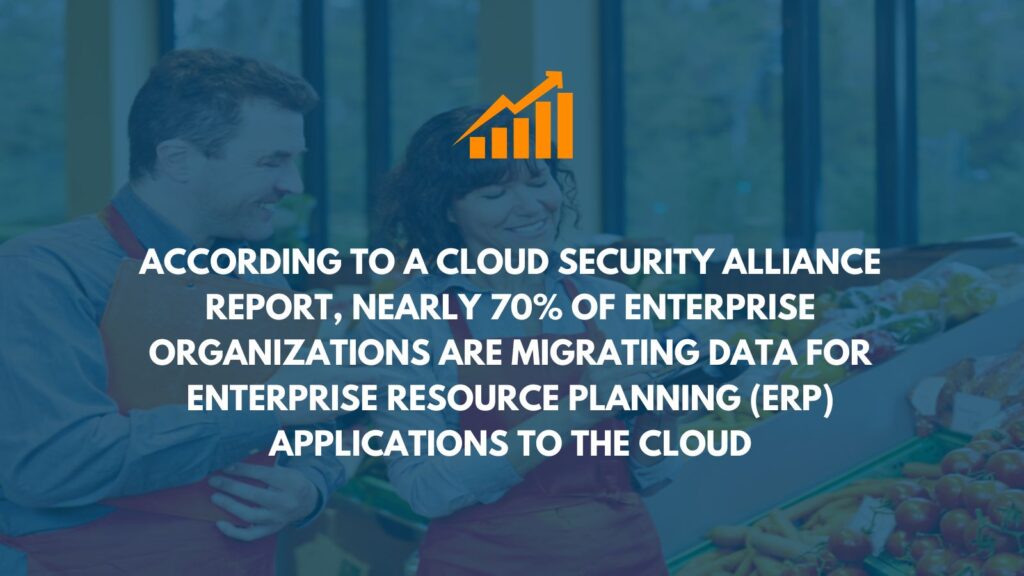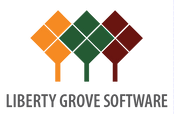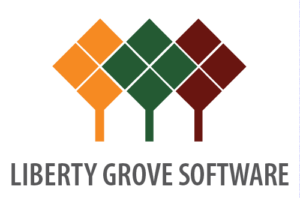Is Your Food ERP Delivering a Solid ROI? Or is it Time to Upgrade?

As the food and beverage industry continues to become increasingly more competitive, you likely implemented an ERP system because you understood the myriad benefits to your organization. Now it's time to ask the million-dollar question: Is your Food ERP delivering a solid ROI?
Or is it time to upgrade?

And it's an excellent question to ask. The next question is: how do we measure it?
It can be a complicated process, but one thing never changes – the ROI equation.
ROI = [(Value of Investment – Cost of Investment) / Cost of investment] x 100%
So, where do we start?
Let's look at the costs associated with your ERP solution over its lifetime.
These almost certainly include the following:
- Cost of licensing: What is the fee if you have a monthly Software as a Service (SaaS) agreement?
- Implementation costs: You've likely invested significant monies from consulting to installing the solution.
- Hardware and maintenance costs would be significantly higher if you selected an on-premise solution over a cloud solution.
- Training costs: Getting employees up to speed on the new working method.
- Cost of upgrades: If your vendor improved your solution as technology advanced, this may or may not have come at a cost.
Balance these costs against the value the system has provided over time; this is where things become complicated.
If your company still needs to actively work out the savings and improvements that ERP has brought, you'll need to dig into your historical operations records.
There are some critical areas to consider, such as comparing performance levels before and after implementation. Consider the following:
- Savings in time and labor
- Waste reduction
- Warehouse efficiency
- Productivity
- Supply chain administration
- Cost of operations
- Benefits of integrating data across the organization
Making these decisions is a complex science. Some of these criteria are far more abstract than others, so the more data you review and the more time you spend examining it, the more accurately you'll be able to define the actual value of the ERP to the company.
Solutions with superior reporting, data interpretation, and Business Intelligence capabilities will make ROI calculations more straightforward and accurate.
Is it time to upgrade to a cloud-based ERP system?
You may feel underwhelmed after researching the value your system brings to the business. When using an older ERP, it is common to discover that the ROI was high initially but has since declined.
The food industry is constantly changing, as are the demands placed on businesses and employees. The most advanced technology assists you in meeting these challenges.
If this raises red flags, consider whether your current system is the best option for you now and in the future. If any of the following conditions apply, perhaps it's time to consider upgrading to a modern ERP:
Your ERP is on-premise: These solutions are far more prone to quickly becoming obsolete and are less future-proof than cloud and hybrid options.
Your ERP is a one-size-fits-all solution: The advantages of such a system may have initially boosted your business. Still, food and beverage-specific ERP has never been more important in meeting the industry's modern challenges.
Your supplier is small: Small, regional vendors were once ideal for food businesses. However, those who can provide the best-funded, most-advanced platforms, such as Microsoft Dynamics, are now leading the way.
5 Reasons Why ERP Modernization Is Critical
- Gain a competitive advantage
According to a Deloitte study, 9 out of 10 respondents said modernization techniques helped them stay competitive. Finding people with the necessary skills to manage complex legacy systems is challenging. Cloud ERP systems that are modern and intelligent are simple to maintain and allow technology to advance.
- More opportunities for expansion
Does your legacy system expand as your company grows? If your system cannot meet your rapidly changing business requirements, it is time to upgrade to modern software. Cloud ERP provides an important feature called scalability.
- Performance and security
To ensure maximum security, Cloud ERP supports multi-layer firewall testing. Cloud ERP systems are more comprehensive and integrated, avoiding the vulnerability and risks associated with a multi-vendor landscape.
- Future-proof your organization
AI (Artificial Intelligence), ML (Machine Learning), IoT (Internet of Things), and other intelligent technologies are built into SaaS or cloud platforms. These technologies communicate with machines and sensors to send data to the cloud in real-time.
- Improved understanding and connectivity
While legacy ERP provides reporting and management tools, cloud ERP unlocks Big Data and allows access to previously hidden information. It operates on a single database to improve speed, visibility, connectivity, and accuracy.
Employees can access information and manage tasks on mobile devices with cloud ERP.
A modern user interface (UI) enables users to complete tasks more quickly and easily. Suppliers, trading partners, third-party vendors, and customers can access real-time information through portals tailored to each stakeholder.
Advantages of Migrating from Legacy ERP to Cloud ERP
Shifting from legacy to modern cloud ERP can provide numerous advantages to your organization. Current ERP can transform the entire business, from allowing employees to manage tasks remotely to tracking departmental operations and resources.
Let's look at why cloud ERP is superior to legacy ERP.
- Application
Cloud ERP does not necessitate the installation of any hardware. As a result, depending on the complexity of the business, implementing a cloud system can take anywhere from a few weeks to a few months. Legacy ERPs are much more challenging to implement, requiring hardware installation and a team of IT professionals to get the software up and running.
- Reduced expenses
With one-time subscription fees, cloud ERP reduces the organization's upfront costs. Rather than purchasing multiple software programs to manage finances, warehouses, accounts, material requirements, and so on, it is preferable to pay for a single system that provides connectivity and real-time data access across departments.
A modern ERP system helps businesses reduce inventory costs by tracking it efficiently to avoid overages, waste, and stock-outs, which can halt production. Furthermore, demand forecasting can lower purchasing costs by allowing companies to negotiate discounts in advance and determine which will yield the most significant dividends.
- Data accessibility in real-time
Cloud-based ERP allows users to track, streamline, manage, and report on tasks and resources in real-time from any device – employees in this technologically advanced era work from all over the world. Businesses have several warehouses, shop floors, and offices in various locations.
- Maintenance
We've seen that legacy system providers don't keep ERP software current. Cloud ERP vendors manage all IT issues and software updates remotely and around the clock. Furthermore, cloud systems provide the modern user interface that today's employees expect.
- Transformation to the digital age
Cloud ERP integrates cutting-edge technologies such as IoT, Machine Learning, Data Analytics, AI, and others to help manufacturers automate their day-to-day operations and differentiate themselves from the competition. Cloud computing enables organizations to scale their infrastructure to meet changing priorities while addressing regulatory compliances to ensure quality.
Ready to evaluate and upgrade your ERP?
Replacing a legacy ERP system with cloud ERP will result in significant organizational changes. Suppose you want to learn more about updating your ERP to a modern cloud solution or about the cost of ERP for small businesses. In that case, the Liberty Grove Software team of ERP consultants can guide you to the right ERP solution for your organization.
We'll provide the services you need to guide you through evaluation, project planning, implementation, testing, training, and ongoing support.
Contact Liberty Grove for a complimentary consultation on how Cloud ERP can reduce costs and elevate your business to the next level.
Related reading:
Best 10 Reasons to Move Your On-Premises ERP to the Cloud - Liberty Grove Software
Move into 2023 without Your Legacy ERP! - Liberty Grove Software
About the author
Liberty Grove Software is an established Microsoft Partner that focuses on providing customers with sales, service, and support for Microsoft Dynamics 365 Business Central/NAV solutions and training and upgrades.
Over more than 25 years, Liberty Grove has assisted hundreds of customers with businesses ranging from small to mid-sized to Microsoft Partners in implementing, training, customization, and upgrading Microsoft Dynamics ERP solutions.
The organization is one of only a few companies worldwide that Microsoft recognizes as qualified to provide Business Central/NAV Upgrade Service Centers.

